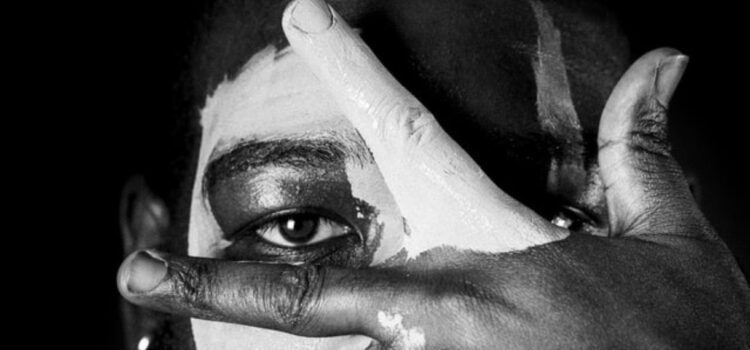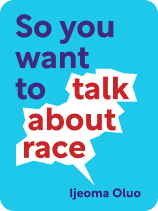

This article is an excerpt from the Shortform book guide to "So You Want to Talk About Race" by Ijeoma Oluo. Shortform has the world's best summaries and analyses of books you should be reading.
Like this article? Sign up for a free trial here .
Are you looking for So You Want to Talk About Race quotes by Ijeoma Oluo? What are some of the most noteworthy passages that highlight the author’s key ideas about racial inequality?
In So You Want to Talk About Race, Ijeoma Oluo offers a handbook on how to have intelligent, productive, empathic conversations about race. The following So You Want to Talk About Race quotes highlight some of the author’s key ideas about racial identity and oppression.
Keep reading for So You Want to Talk About Race quotes by Ijeoma Oluo.
So You Want to Talk About Race: Quotes and Passages
“As a black woman, race has always been a prominent part of my life. I have never been able to escape the fact that I am a black woman in a white supremacist country.”
In the first of the So You Want to Talk About Race quotes, Oluo makes a point that race has always played a central role in her life. She was always acutely aware of her racial identity, but she didn’t actively try to bring implicit racism to the forefront of the conversation.
In her 30s, she found her conditioned acceptance of racism dwindling. She stopped bending over backwards to prove that she was professional, hardworking, excessively polite, and definitely not an angry black woman. She stopped letting racist jokes slide, she started having difficult conversations with her friends, and she converted her food blog into something more personal: a site that offered insights and analysis on race-related topics that were designed to be more useful, analytical, and personal than the superficial “hot takes” usually published on these topics.
When she started questioning, resisting, and bringing up racial injustice with those around her, it did not go well. Her white friends (and growing up in Seattle, most of her friends were white) became uncomfortable. She wasn’t “fun” anymore. Despite their willingness to get angry about global warming and political corruption, they didn’t feel the same way about racial injustice. As these former friends fell away from her life, people of color who responded to her online posts replaced them, and she found comfort, community, and strength in this online community.
After some time writing for online magazines, Ijeoma Oluo decided to write a book, combining and extending her ideas and giving useful, no-nonsense advice on how to talk about race. That book is So You Want to Talk About Race.
“It is about race if a person of color thinks it is about race. It is about race if it disproportionately or differently affects people of color. It is about race if it fits into a broader pattern of events that disproportionately or differently affect people of color.”
In this passage, Oluo makes a point that sometimes a conversation that is not directly about race is actually about race. People might ask, “but isn’t it about class, not race?” or defend someone with “But he didn’t mean any harm!” The conversation might not be only about race, but race is relevant if any of these three criteria is met:
1. A person of color says it’s about race. The racial identity of the person of color is part of them and part of any situation they’re telling you about. That means that race is playing a role, even if it doesn’t seem to you like the main issue.
2. It affects people of color differentially or disproportionately. The point is not that something only affects people of color—it’s that its impact on them is greater than it would be if there were true racial parity. The fact that you can think of a black musician who swept an awards night or a Native American artist who’s achieved widespread recognition doesn’t mean it’s the rule. Do you need to come up with the names of white billionaires or musicians to prove that white people are doing well?
3. It’s part of a pattern that affects people of color differentially or disproportionately. Racism is systemic. It takes many forms, from the subtlest to the most blatant. The fact that there are extreme forms of racism doesn’t make the subtler forms any less serious or any less racist.
“As I said earlier, just because something is about race, doesn’t mean it’s only about race. This also means that just because something is about race, doesn’t mean that white people can’t be similarly impacted by it and it doesn’t mean that the experience of white people negatively impacted is invalidated by acknowledging that people of color are disproportionately impacted.”
The point is not that something only affects people of color—it’s that its impact on them is greater than it would be if there were true racial parity. The fact that you can think of a black musician who swept an awards night or a Native American artist who’s achieved widespread recognition doesn’t mean it’s the rule. Do you need to come up with the names of white billionaires or musicians to prove that white people are doing well?
For example, poverty affects all races. But people in Appalachia are not poor for the same reasons that people in Chicago are poor. The contributing factors are different, so the solutions need to be different. One person’s battle with brain cancer doesn’t cancel out another person’s battle with breast cancer. They’re two equally real diseases and need two real, targeted solutions.
“Systemic racism is a machine that runs whether we pull the levers or not, and by just letting it be, we are responsible for what it produces.”
If something is systemic institutional, it’s built into the underlying structure of a system. It’s an integral part of how the system operates. We can visualize each instance of institutional racism as a thread in a vast fabric—so vast that we’re completely caught up in it and can’t see its boundaries or overall shape. Similarly, we’re surrounded by racist messaging, but much of this operates unconsciously.
“Intersectionality brings people face-to-face with their privilege. People, in general, do not like to recognize the ways in which they may be unfairly advantaged over other people.”
Intersectionality is the recognition that multiple types of disadvantage intersect in complicated ways, either offsetting or compounding one another in an individual’s life. This last of So You Want to Talk About Race quotes highlights the discomfort that people feel when they are called out to examine the ways in which they are unfairly privileged over others. However, training yourself to see your privilege is training yourself to see the system that perpetuates oppression and inequality.
In So You Want to Talk About Race, Ijeoma Oluo encourages the reader to get into the habit of checking his/her privilege as often as they can. No matter how much reflecting you do, you’ll always have some unexamined privilege. Stay open to being shown your blind spots. Practice working with the feelings of defensiveness that arise when you come face to face with another area in which your privilege is getting in the way of empathy or sensitivity.

———End of Preview———
Like what you just read? Read the rest of the world's best book summary and analysis of Ijeoma Oluo's "So You Want to Talk About Race" at Shortform .
Here's what you'll find in our full So You Want to Talk About Race summary :
- How to have an intelligent, empathetic conversation about race
- Why people are afraid to talk about race
- Where racism came from and what fuels it






